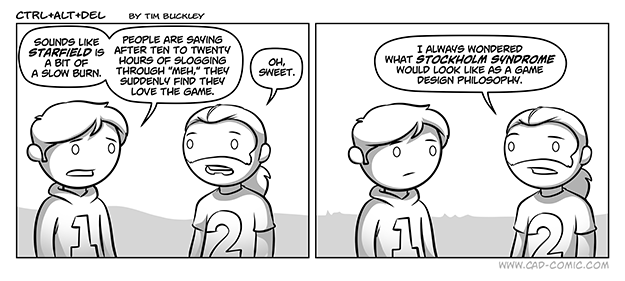A lot of times when I say “if you love Dark Souls, you’ll love this game”, I have to follow it up with “but it probably won’t change people’s minds if they aren’t fans of that genre.”
The first part of that statement holds true for Nioh; if you’re a fan of Dark Souls/Bloodborne, you need to get on this. But it also feels different enough, advances the genre just enough that it may entice some new players.
Let’s be clear from the get-go, however, that the core of Nioh is very much in line with a the Souls experience. You work your way through a map with enemies of varying difficulty, in a combat system where misteps are severely punished, on your way to a giant boss encounter with a long health bar at the bottom of the screen. If at any point along the way you die, you drop all of the experience you’d yet to spend (at predetermined locations), and you’ll need to make it back to your death spot to collect it without dying again, or it will be lost forever.
Like I said, the meat of the game is perfectly executed Souls. They could have simply done that and it would have felt solid and perfect and welcome. However… Team Ninja innovated on some things which make the game feel fresh and complex and, in some aspects, may even make it hard to go back to a pureblood Souls title without these enhancements.
There are a handful of weapons, as you’d expect. They all have different movesets, ranges, strengths and weaknesses. But to toss in another wrinkle, Nioh lets you fluidly move between three stances, high, medium and low, exchanging power for speed and vice versa. This takes a weapon that you may love, and lets you further adjust its style to fit the situation. Facing a big, lumbering Yokai? Step into high stance for a couple powerful hits before you dodge away. Or slide into low stance and overwhelm an outlaw with a flurry of quick blows before they know what hit them.
Additionally, bows and rifles are powerful, viable weapons in Nioh. A well-aimed headshot can dispatch enemies in one hit, as opposed to being merely a pulling mechanism as they often are in the Souls games. Stealth, too, has some merit in Nioh.
The tradeoff, it seems, is that magic is relegated to tool in your arsenal, supplementary assistance, rather than a potential class mechanic. That will be a disappointment for Souls players that go full mage, but the game is (slightly) more grounded in reality than a Souls game and so the focus on traditional weapons makes more sense.
One of the big elements of a Souls game is the blurred line between single-player and co-op, and Nioh alters its take on that as well. There are “bloodstains,” marked locations where other players have perished in their travels. More than just seeing how and where they died, though, you can summon their Revenant and challenge it. If you vanquish it, you’re rewarded with gear, glory and items.
Similar to Dark Souls, you can summon a companion spirit to fight alongside you. Unlike Dark Souls, this costs an expendable item. While its a small change, I found it has a noticeable impact on the decision of when and how often to summon help. Knowing that you’re using up an item that is, while not impossible to farm (you mostly get them from the aforementioned Revenants) makes you think a little more about bringing on help (and stings a bit more when you bring on crummy help).
Still, having someone navigate the cruel and unforgiving world alongside you is every bit as comforting as it is in a Souls game. The big catch though is this: Your spirit companion has to have beaten the mission your doing first. You cannot play through the game alongside a friend, nor can you let yourself be summoned into someone else’s game in order to “learn what you’re in for” (a favorite strategy of mine in Souls games).
The familiarity of the concept, coupled with various enhancements such as Guardian Spirits, smithing/forging/soul-forging, the Diablo-esque tons-o-loot system, and repeatable/alternate missions make Nioh stand out as the exceptional game us Souls fiends needed (with no new Souls game on the horizon). Nioh is the sort of “copied concept” that works; taking the original, executing it to perfection and even improving on the formula.











